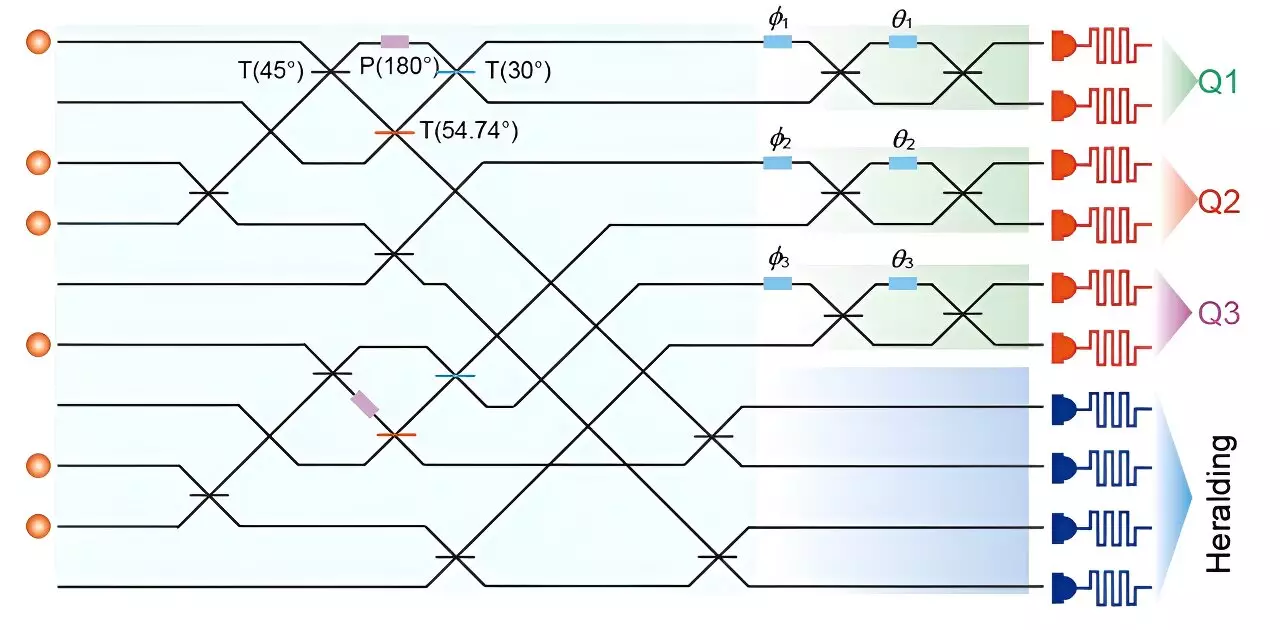Quantum computing has emerged as a revolutionary field that holds the potential to outperform classical computers in terms of speed and efficiency. One of the most promising branches of quantum computing is photonic quantum computing, which utilizes particles of light (photons) as units of information processing. Despite their promise, photonic quantum computers have faced challenges due to weak interactions between individual photons. However, recent research by the University of Science and Technology of China has shown significant progress in this realm.
The weak interactions between single photons have been a major hurdle in the development of photonic quantum computers. This limitation has hindered the realization of deterministic two-qubit gates that are essential for scalability. Traditional approaches to quantum computing, such as superconducting qubits and trapped ions, have required deterministic entangling gates, making scalability difficult to achieve. However, researchers at the University of Science and Technology of China have proposed a novel solution to this challenge.
Fusion and percolation have emerged as scalable approaches to quantum computation in photonic systems. By fusing small resource states, researchers can create large-scale cluster states that are ideal for measurement-based quantum computing. The concept of percolation suggests that success is achievable if the fusion gate’s success probability exceeds a specific threshold. This innovative approach has paved the way for significant advancements in photonic quantum computing.
One of the key findings of the research conducted by Wang and his colleagues is the near-deterministic generation of 3-GHZ states. By employing a strategy that involves fusing small resource states, researchers were able to create a large cluster state capable of processing quantum information effectively. This achievement represents a crucial milestone in the development of fault-tolerant photonic quantum computing.
The researchers at the University of Science and Technology of China have made significant strides in the field of photonic quantum computing. By utilizing a single-photon source in a photonic chip, they were able to generate a 3-GHZ state, which is essential for processing quantum information. This experimental setup represents a state-of-the-art approach to photonic quantum computing, paving the way for future advancements in the field.
The recent advancements in photonic quantum computing, as demonstrated by Wang and his collaborators, signify a step forward in the realization of fault-tolerant, measurement-based quantum computing. By leveraging large cluster states, researchers are edging closer to the effective implementation of fault-tolerant photonic quantum computers. The potential for achieving fusion gates with eight single photons is within reach, and the amalgamation of multiple 3-GHZ resource states could lead to the creation of more extensive entangled states.
The research conducted by the University of Science and Technology of China represents a significant contribution to the field of photonic quantum computing. By addressing the challenges of weak interactions between individual photons, researchers have made substantial progress towards the development of fault-tolerant quantum computers. With continued advancements in this area, we are moving closer to unlocking the full potential of photonic quantum computing.


Leave a Reply